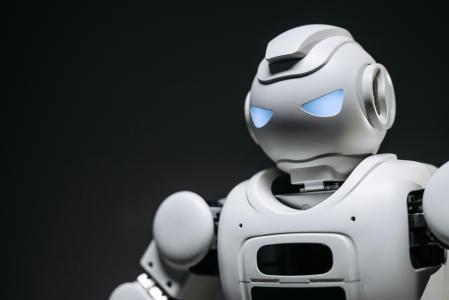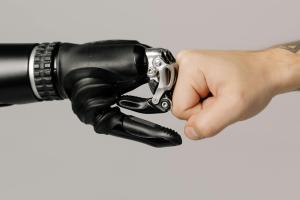AI in Coding, Part 7: Will AI Replace Programmers? Looking 20–40 Years Ahead
Part 7: The big question every programmer is asking. Four scenarios for the long term future of software engineering, from autonomous AI developers to post-coding era.

Every few years, a new wave of technology sparks the same question: “Will this replace programmers?” It was asked when compilers appeared, when frameworks exploded, when low-code platforms promised drag and drop apps.
Today, with AI coding agents that can already write, test, and refactor code, the question feels louder than ever. Let’s look 20 to 40 years ahead: not just at what’s possible, but at what’s plausible.
Scenario 1: The Autonomous AI Developer
In this future, AI is no longer just an assistant. It is a full stack developer capable of taking a vague idea and producing a production ready system:
- Scoping requirements with natural language.
- Designing system architecture.
- Generating code, tests, and documentation.
- Deploying and monitoring in production.
Humans step in only to provide constraints and governance. A product manager might say, “Build me a payments system with these compliance rules” and the AI delivers.
This scenario is technically possible. The open question is whether we’ll trust it.
Scenario 2: The Post-Coding Era
In this future, coding itself becomes obsolete. Humans stop writing code directly and instead interact with systems through intent, goals, and natural language. Coding becomes like assembly today: still around, but practiced by specialists and hobbyists, not mainstream engineers.
- Software is generated on demand, tailored to specific contexts.
- “Programming languages” give way to intent languages: ways of telling machines what to do, not how.
- The profession of software engineering transforms into something closer to governance, design, and ethics.
If this sounds far-fetched, remember: most people today don’t hand-craft HTML or write C, even though both were once dominant.
We’ve already seen a version of this in science fiction. In Star Trek, crew members often interact with the ship’s computer to create new holodeck experiences, run astrophysics simulations, or design tools on the fly. Nobody is writing functions in C++; they just say what they need, and the computer figures it out. The funny part is that future humans never seem to argue with the computer about prompt wording: which might be the least realistic part of the show.
Scenario 3: Humans in the Loop Forever
In this future, AI reaches near-autonomy but never achieves full independence. Not because of technical limitations, but because of trust, governance, and liability.
- Regulations mandate human oversight for safety-critical systems.
- Companies retain human engineers to ensure accountability.
- Engineers evolve into supervisors of AI teams, managing dozens of autonomous agents but still taking final responsibility.
This scenario mirrors industries like aviation, where autopilot can fly the plane but a human pilot must always be present.
Scenario 4: The Dark Side
It’s also worth considering the risks:
- AI-generated software may introduce systemic vulnerabilities if left unchecked.
- Entire organizations might over-delegate, creating brittle stacks nobody fully understands.
- Jobs could shift unevenly, leaving some regions or industries behind.
The dark side is not inevitable: but it is possible if we rush without guardrails.
What’s Most Likely?
If we put probabilities on these scenarios:
Autonomous AI developer: Highly likely in 20 years, at least for simple and mid-tier applications.
Post-coding era: Possible in 30–40 years, but less certain. May happen in consumer software faster than enterprise systems.
Humans in the loop forever: Almost guaranteed. Governance, ethics, and accountability will keep people involved.
Dark side: Possible if we treat AI as magic and skip oversight.
The reality may be a hybrid: AI does the heavy lifting, humans set the vision and guardrails.
✅ Key Takeaway
AI might replace coding as we know it, but it is unlikely to replace programmers entirely. The role of the engineer will evolve: less typing, more guiding. Less syntax, more strategy. The future of programming may not be about writing code at all: it may be about deciding what should be built, why it matters, and how to ensure it aligns with human values.
This article is part of my series “AI in Coding – From Past to Future.”
🎥 Watch the Full Lecture
For a deeper dive into this topic, watch my complete presentation on AI in software development:
Note: The introduction is in Bosnian, but the main lecture is in English and starts around the 3-minute mark.
This lecture covers all the topics in this series and provides additional insights and Q&A.
Full Series:
- Part 1: From Lisp to Copilot: The Evolution of AI in Software Development
- Part 2: AI Tools Every Engineer Should Know in 2025
- Part 3: Best Practices for Working with Your New Junior Developer
- Part 4: I Let AI Build BigToFit.com During My Lecture
- Part 5: How Far We’ve Come in Just 3 Years
- Part 6: The Next 10 Years of Software Development
- Part 7: Will AI Replace Programmers? (this post)
- Part 8: Future-Proofing Your Career (Coming October 23)
What’s your take on these scenarios? Do you see yourself evolving from coder to AI supervisor, or do you think there will always be a place for hands on programming? I’d love to hear your thoughts on which future seems most likely to you.

Irhad Babic
Practical insights on engineering management, AI applications, and product building from a hands-on engineering leader and manager.


